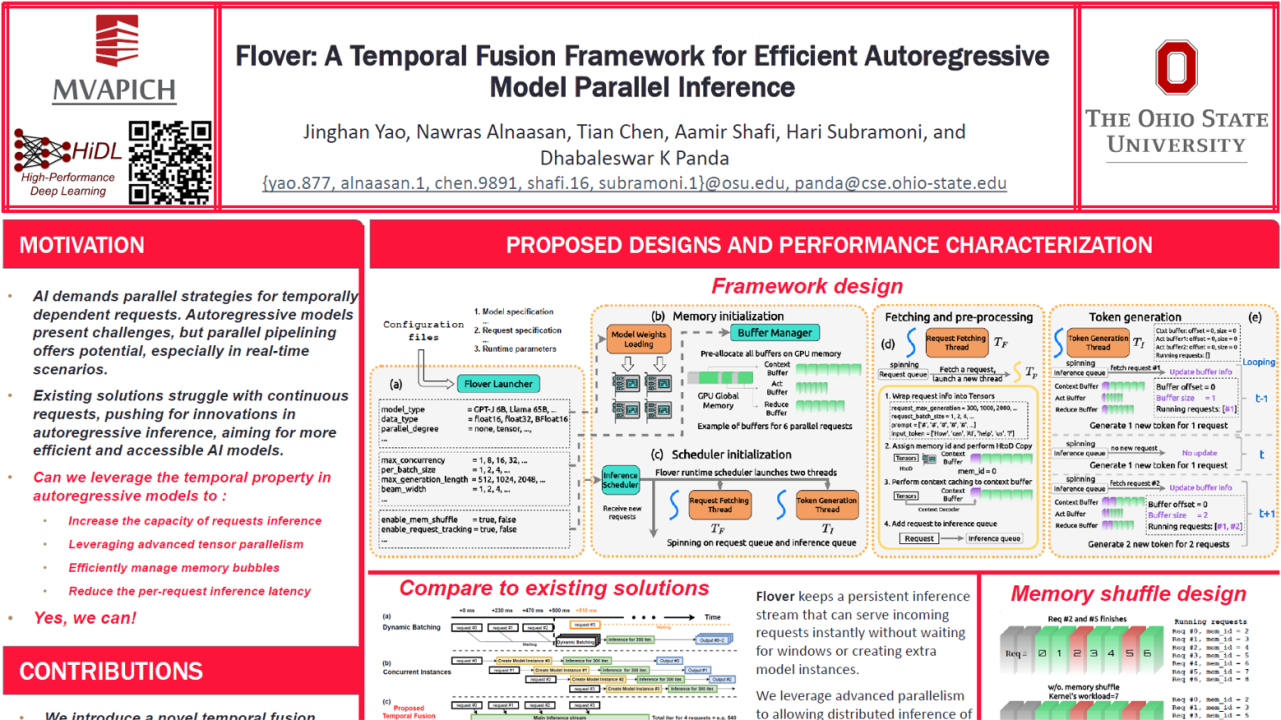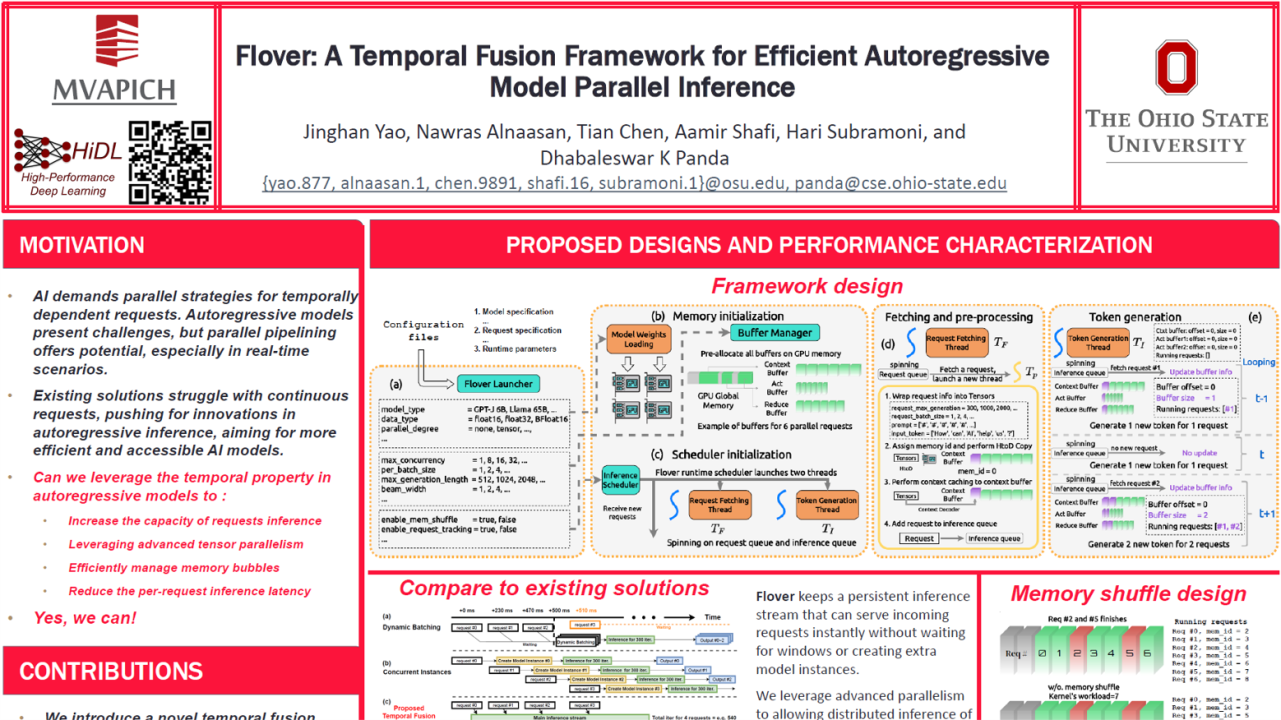

A Temporal Fusion Framework for Efficient Autoregressive Model Parallel Inference
Monday, May 13, 2024 3:00 PM to Wednesday, May 15, 2024 4:00 PM · 2 days 1 hr. (Europe/Berlin)
Foyer D-G - 2nd floor
Research Poster
AI Applications powered by HPC TechnologiesHPC System Design for Scalable Machine LearningLarge Language Models and Generative AI in HPCML Systems and ToolsScalable Application Frameworks
Information
Poster is on display and will be presented at the poster pitch session.
Autoregressive models, despite their commendable performance in a myriad of generative tasks, face challenges stemming from their inherently sequential structure. Inference on these models, by design, harnesses a temporal dependency, where the current token's probability distribution is conditioned on preceding tokens. This inherent characteristic severely impedes computational efficiency during inference as a typical inference request can require more than thousands of tokens, where generating each token requires a load of entire model weights, making the inference more memory-bound. The large overhead becomes profound in real deployment where requests arrive randomly, necessitating various generation lengths. Existing solutions, such as dynamic batching and concurrent instances, introduce significant response delays and bandwidth contention, falling short of achieving optimal latency and throughput. To address these shortcomings, we propose Flover -- a temporal fusion framework for efficiently inferring multiple requests in parallel. We deconstruct the general generation pipeline into pre-processing and token generation, and equip the framework with a dedicated work scheduler for fusing the generation process temporally across all requests. By orchestrating the token-level parallelism, Flover exhibits optimal hardware efficiency and significantly spares the system resources. By further employing a fast buffer reordering algorithm that allows memory eviction of finished tasks, it brings over 11x inference speedup on GPT and 16x on LLAMA compared to the cutting-edge solutions provided by NVIDIA FasterTransformer. Crucially, by leveraging the advanced tensor parallel technique, Flover proves efficacious across diverse computational landscapes, from single-GPU setups to distributed scenarios, thereby offering robust performance optimization that adapts to variable use cases.
Contributors:
Autoregressive models, despite their commendable performance in a myriad of generative tasks, face challenges stemming from their inherently sequential structure. Inference on these models, by design, harnesses a temporal dependency, where the current token's probability distribution is conditioned on preceding tokens. This inherent characteristic severely impedes computational efficiency during inference as a typical inference request can require more than thousands of tokens, where generating each token requires a load of entire model weights, making the inference more memory-bound. The large overhead becomes profound in real deployment where requests arrive randomly, necessitating various generation lengths. Existing solutions, such as dynamic batching and concurrent instances, introduce significant response delays and bandwidth contention, falling short of achieving optimal latency and throughput. To address these shortcomings, we propose Flover -- a temporal fusion framework for efficiently inferring multiple requests in parallel. We deconstruct the general generation pipeline into pre-processing and token generation, and equip the framework with a dedicated work scheduler for fusing the generation process temporally across all requests. By orchestrating the token-level parallelism, Flover exhibits optimal hardware efficiency and significantly spares the system resources. By further employing a fast buffer reordering algorithm that allows memory eviction of finished tasks, it brings over 11x inference speedup on GPT and 16x on LLAMA compared to the cutting-edge solutions provided by NVIDIA FasterTransformer. Crucially, by leveraging the advanced tensor parallel technique, Flover proves efficacious across diverse computational landscapes, from single-GPU setups to distributed scenarios, thereby offering robust performance optimization that adapts to variable use cases.
Contributors:
Format
On-site

